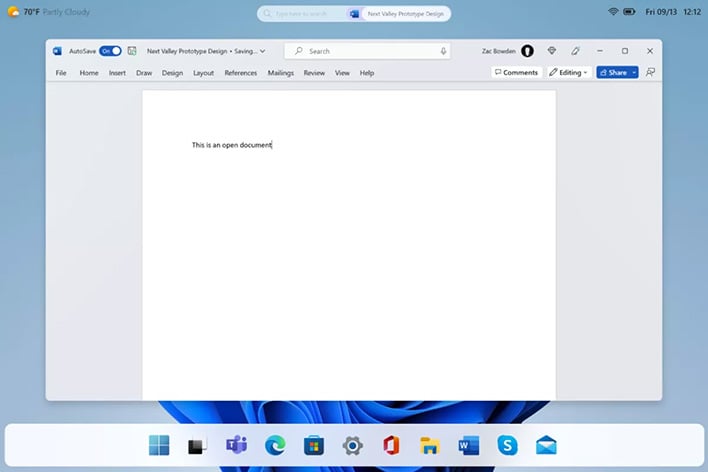Windows 12 Plans Reveal A Bold Redesign, Tighter Security And AI-Powered Features
Microsoft is also reportedly building a new lightweight version of Windows called CorePC alongside this Windows 12 development. This project is unlike anything Microsoft has built before and is the spiritual successor to all of Microsoft’s previous lightweight OS’, including Windows 10X/Core OS, and the infamous Windows RT operating system.
Basically, what Microsoft is doing with CorePC is creating a new version of Windows that can be fully customized to meet the demands of different system applications or form factors. CorePC at its heart features a fully-enabled desktop Windows experience but core features of the operating system can be disabled if they aren’t necessary. For instance, if an education platform was looking into a fleet of Windows-based machines, it could disable legacy Win32 app support to tighten security on those devices. Optionally, some of these laptops could re-enable this feature if needed.
While CorePC technically has the full desktop Windows experience, it will not be a direct copy of vanilla Windows 10 or Windows 11. Microsoft is building this version in a more modernized application that will behave similarly to iPadOS or Android mobile operating systems. The biggest change is the transition to a strategy called “state separation”, where the OS, system files, and user data are all split is split into multiple partitions. This will enable faster updates and enable more reliable system reset functionality for CorePC. Security will also be increased since parts of the OS will live under read-only partitions.
It is reported that CorePC will be Microsoft’s true Chromebook competitor, and will have similar performance on lower-end education PCs. It is also reported to be 60 to 75% smaller than Windows 11 SE. Another interesting tidbit about CorePC is that Microsoft is supposedly working on a silicon-optimized version that will focus on AI capabilities similar to that of Apple with its own CPUs.


